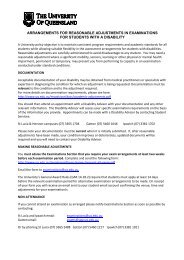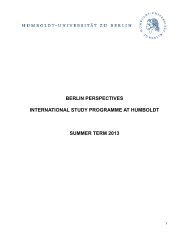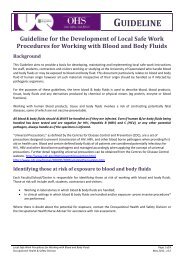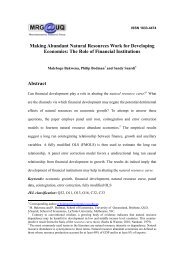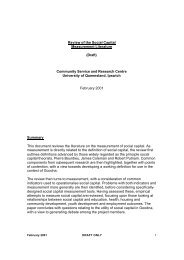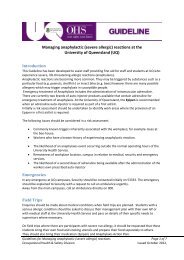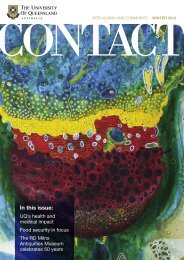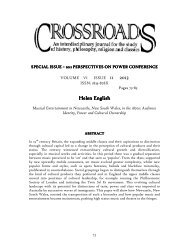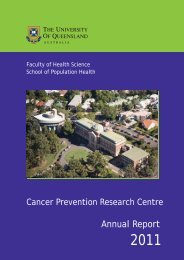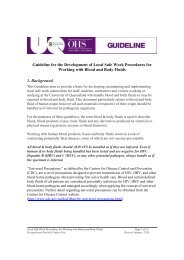Managing Traffic Incidents - University of Queensland
Managing Traffic Incidents - University of Queensland
Managing Traffic Incidents - University of Queensland
You also want an ePaper? Increase the reach of your titles
YUMPU automatically turns print PDFs into web optimized ePapers that Google loves.
A Transport Policy for Europe<br />
The European Commission’s objective<br />
for the next ten years is to refocus<br />
Europe’s transport policy on the<br />
demands and needs <strong>of</strong> its citizens as<br />
outlined in the White Paper European<br />
Transport Policy for 2010:<br />
Time to Decide.<br />
The first <strong>of</strong> 60 measures is designed<br />
to shift the balance between modes<br />
<strong>of</strong> transport by 2010, by revitalizing<br />
the railways, promoting maritime and<br />
inland waterway transport and linking<br />
up the different modes <strong>of</strong> transport.<br />
The Commission is proposing initiatives<br />
aimed at bringing about substantial<br />
improvements in the quality<br />
and efficiency <strong>of</strong> transport in Europe<br />
and designed to gradually break the<br />
link between constant transport<br />
growth and economic growth in order<br />
to reduce the pressure on the environment<br />
and prevent congestion<br />
while maintaining the EU’s economic<br />
competitiveness.<br />
It is proposing 60 or so measures to<br />
develop a transport policy for<br />
Europe’s citizens.<br />
– Promoting passengers’ rights –<br />
including compensation where travellers<br />
are delayed or denied boarding<br />
due to overbooking by airlines, and<br />
later extending passenger protection<br />
measures to other modes <strong>of</strong> transport, notably<br />
rail, maritime and, as far as possible,<br />
urban transport services<br />
– Improving road safety – over 41,000<br />
Europeans lost their lives on the roads in<br />
the year 2000 and every effort is to be<br />
made to halve the number <strong>of</strong> road deaths<br />
by 2010. Proposals include the development<br />
<strong>of</strong> appropriate signposting <strong>of</strong> blackspots,<br />
combating excessively long driving<br />
times, harmonising road transport penalties<br />
at European level, and considerably increasing<br />
the use <strong>of</strong> new technologies, safe<br />
new vehicles, the protection <strong>of</strong> vehicle occupants<br />
in the event <strong>of</strong> impact, and the setting<br />
<strong>of</strong> safety standards for the design <strong>of</strong><br />
car fronts in particular<br />
– Making safety a priority – more generally,<br />
the objective is to ensure that safety<br />
takes priority in all circumstances. Citizens<br />
must be guaranteed the highest possible<br />
level <strong>of</strong> safety as a result <strong>of</strong> appropriate<br />
legislation and the strict application <strong>of</strong> controls<br />
and penalties for modes <strong>of</strong> transport<br />
such as aviation, shipping and the railways<br />
– Preventing congestion – if nothing is<br />
done, Europe will rapidly be threatened<br />
with "apoplexy at the centre and paralysis<br />
at the extremities". The Commission is<br />
proposing to put an end to current trends<br />
and shift the balance between the different<br />
modes <strong>of</strong> transport through a proactive policy<br />
to encourage the linking-up <strong>of</strong> the different<br />
modes and promote rail,<br />
maritime and inland waterway<br />
transport. A new program will<br />
be created to promote intermodality,<br />
called Marco Polo, with<br />
an annual budget <strong>of</strong> around 30<br />
million euro<br />
– Towards sustainable mobility<br />
– transport in Europe must,<br />
as a matter <strong>of</strong> priority, be compatible<br />
with environmental protection.<br />
A wide range <strong>of</strong> measures<br />
are being proposed to develop<br />
fair infrastructure charging<br />
which takes into account external<br />
costs and encourages the use<br />
<strong>of</strong> the least polluting modes <strong>of</strong><br />
transport, to define sensitive ar-<br />
8 DECEMBER 2001


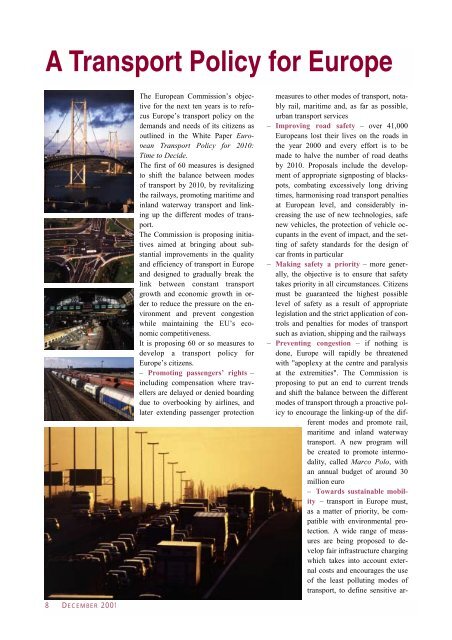
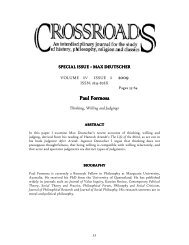
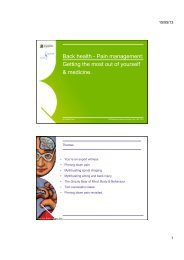
![Recycling [ PDF, 62KB ] - University of Queensland](https://img.yumpu.com/51805185/1/184x260/recycling-pdf-62kb-university-of-queensland.jpg?quality=85)
